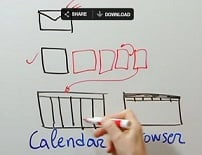 By Pierre Khawand, People-OnTheGo
By Pierre Khawand, People-OnTheGo
The modern day workplace is overloaded with distractions and technological temptations that dramatically reduce our productivity and results at work. Our brains simply can't recover and maximize our efforts from these "start-and-stop" work habits taking over our day.
Ask yourself: When was the last time you sat down at your desk, undistracted, and accomplished 40 minutes of continuous, uninterrupted work?
 You're not alone. Countless professionals simply haven't been trained in the art—and science—of workplace focus. And while it can seem challenging, changing your work habits doesn't have to be hard.
You're not alone. Countless professionals simply haven't been trained in the art—and science—of workplace focus. And while it can seem challenging, changing your work habits doesn't have to be hard.
Here below, I've outlined five steps you can take, right now, to become a productivity champion at work.
1. Prepare.
Create a distraction-free zone at work. Make sure your desk is free of clutter. Shut down email, social media, even your smartphone (or set it to silent, if you need it on for emergencies.) Hang a sign on your door to let co-workers know that you're in a "focused session," and when you'll next be available to collaborate. These quick and simple preparations will help set you up for success.
2. Focus.
Now that you've made your environment free of distractions, you're ready for your first focused session. Set a timer and challenge yourself to focus for 30 to 40 minutes. Don't let yourself get distracted by technology, your thoughts, or another task. Focus on one thing at a time. If you happen to get distracted or are interrupted, try to get back to the task-at-hand as quickly as possible. You can do it! The timer will help hold yourself accountable and encourage you to cross that finish line.

3. Collaborate.
Success! You've just completed your first focused session. Now it's time to collaborate. Take 10-15 minutes to check email, social media, or collaborate with your co-workers, if needed. For managers, this is a great time for your to make yourself available or check in to your team.
It's important to "come up for air," after each focused session, so that you can assess if any priorities have changed, or if you need to bring in any stakeholders to help you complete your task or move to the next phase. Working much longer than 40-minutes at a time will not improve your results—in fact, results have been shown to drop off after 40 minutes of focus! You need to take a rest, regroup, and recharge.
4. Play.
Take 5 minutes or so to break, stand-up, stretch, meditate, eat a snack... Whatever it takes to re-engergize and prepare again for the next focused session. If you're just starting out, make sure to reward yourself for accomplishing your first round of focus, collaboration, and play!
5. Bonus!
Be can advocate for workplace productivity—where you work, and beyond. Vote for "The Results Curve: Focus, Collaborate, Play!" to head to SXSW Interactive 2015! Voting runs through end of day 9/7/14.


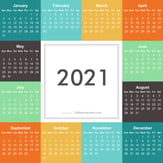
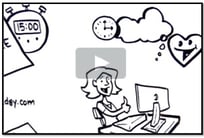



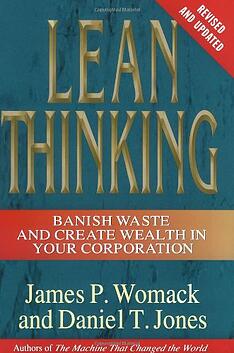
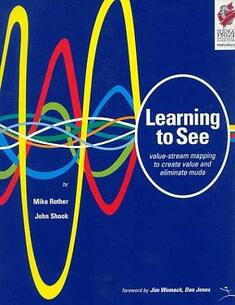
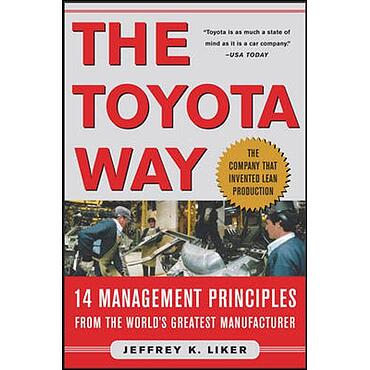

 By Lynda McDaniel,
By Lynda McDaniel,  I was writing an article about Jeffery Robinson, a lawyer whose career was shaped by the Civil Rights Movement. He is kind, courteous, and caring, and I wanted to do him justice. That said, I also was eager to cross this assignment off my to-do list. I put the final touches on the article and asked a colleague to review it. She came back with the dreaded words, “You’re not done.”
I was writing an article about Jeffery Robinson, a lawyer whose career was shaped by the Civil Rights Movement. He is kind, courteous, and caring, and I wanted to do him justice. That said, I also was eager to cross this assignment off my to-do list. I put the final touches on the article and asked a colleague to review it. She came back with the dreaded words, “You’re not done.” “If we let ourselves, we shall always be waiting for some distraction or other to end before we can really get down to our work.” –C.S. Lewis. Today, we live in an era of constant distraction: a fast-paced digital age of multi-screens, electronic alerts, instant messages, and alarms, social media, and near-infinite web search & surf possibilities. At work the temptation toward distraction is a very persistent reality; and it’s making us not only less productive but less smart, too.
“If we let ourselves, we shall always be waiting for some distraction or other to end before we can really get down to our work.” –C.S. Lewis. Today, we live in an era of constant distraction: a fast-paced digital age of multi-screens, electronic alerts, instant messages, and alarms, social media, and near-infinite web search & surf possibilities. At work the temptation toward distraction is a very persistent reality; and it’s making us not only less productive but less smart, too.
 Staying focused means sticking to the desired train of thoughts, relating to a specific topic or task, without having our mind wandering into unrelated and unnecessary areas. In today’s ADD world, this is very challenging. There are many tempting distractions around us and within us that keep taking us off track. Our brain has become very scattered and jumping often from one thing to the next.
Staying focused means sticking to the desired train of thoughts, relating to a specific topic or task, without having our mind wandering into unrelated and unnecessary areas. In today’s ADD world, this is very challenging. There are many tempting distractions around us and within us that keep taking us off track. Our brain has become very scattered and jumping often from one thing to the next.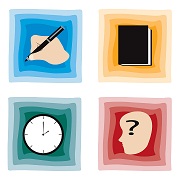 Staying focused in this case means keeping our projects, activities, resources, and decisions all aligned and all working together to achieve a bigger goal.
Staying focused in this case means keeping our projects, activities, resources, and decisions all aligned and all working together to achieve a bigger goal. Here comes our daily focus, which requires managing focused and collaborative effort, not to mention our energy and our mood, as we manoeuver between tasks, unexpected demands, and the ups and downs that go with them.
Here comes our daily focus, which requires managing focused and collaborative effort, not to mention our energy and our mood, as we manoeuver between tasks, unexpected demands, and the ups and downs that go with them. If you happen to be in a service role or a business development role, then certain interruptions are “welcome,” and handling these interruptions is critical for your success. If your customer calls or sends an urgent e-mail while you are working on another matter, it is likely that handling this interruption is necessary or even desirable in order to increase customer satisfaction or close the next sizeable deal. By the way, this applies also to internal customers—people and groups within your organization who depend on your services.
If you happen to be in a service role or a business development role, then certain interruptions are “welcome,” and handling these interruptions is critical for your success. If your customer calls or sends an urgent e-mail while you are working on another matter, it is likely that handling this interruption is necessary or even desirable in order to increase customer satisfaction or close the next sizeable deal. By the way, this applies also to internal customers—people and groups within your organization who depend on your services.